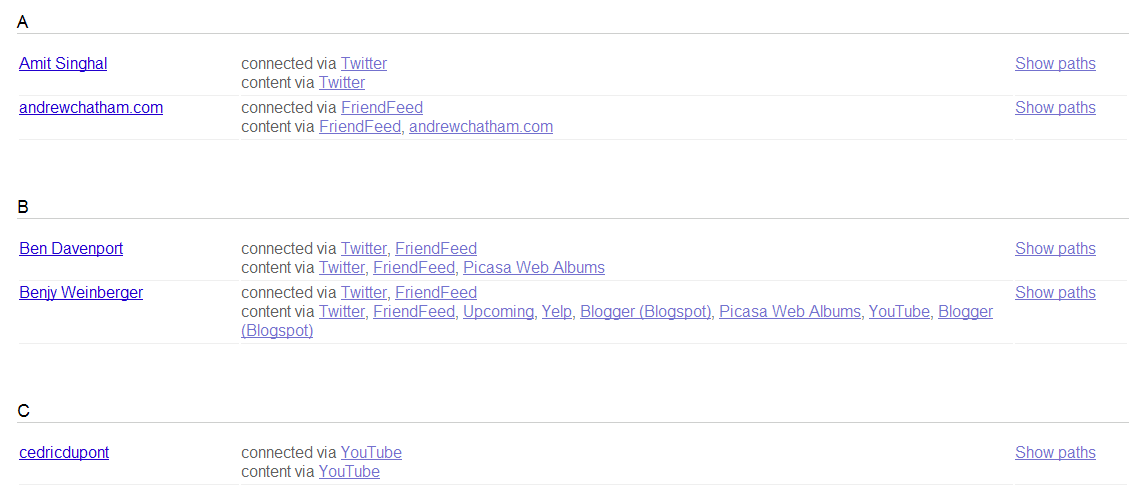The FDA outlines draft guidance on AI for medical devices
The agency also published draft guidance on the use of AI in drug development
Read more...Social Search, a Google Labs experiment first introduced at the Web 2.0 conference back in October, has graduated from Labs and is now available to all users. Though launching in beta (Google is never ready to claim that its products are final and complete, there's always something more to add), Social Search integrates results from your social circle into the search engine's standard results.
As an example, searching for guidance or advice for something will not only return the usual professional sites, but might also deliver pages published by friends, family, co-workers, or whomever else from your social circle:
With Social Search, when we search for [baby sleep patterns], [swaddling] or [best cribs], not only do we get the usual websites with expert opinions, we also find relevant pages from our friends and contacts. For example, if one of my friends has written a blog where he talks about a great baby shop he found in Mountain View, this might appear in my social results. I could probably find other reviews, but my friend's blog is more relevant because I know and trust the author.
The new search tool should also work with image searches.
Google has added two features to Social Search, called "My social circle" and "My social content," which give the user greater control in terms of navigating their social circles as well as observing their own online image. The former reveals the user's extended online network alongside content associated with the user's connections. The latter reveals how and which of one's own content might appear in the search results of others.

You might have missed this little bit of news amidst all the Apple iPad madness, but it represents well Google's recently persistent push into social, an aggressive move against, among many other sites, Facebook and Twitter, who are usually considered the sitting sovereigns of social media.
Though Google cannot freely access data on Facebook's site, giving the social networking site the advantage in terms of quantity, Social Search can pull certain content if the Facebook user in question has linked their account with their Google profile. Still, no matter what Google does, it lacks Facebook's network.
Nevertheless, if Google's increasing efforts to mingle the social with search foreshadow a fight ahead with Facebook. One has the search power and one has the network: who will own social search?
The agency also published draft guidance on the use of AI in drug development
Read more...The biggest focus areas for AI investing are healthcare and biotech
Read more...It will complete and submit forms, and integrate with state benefit systems
Read more...



